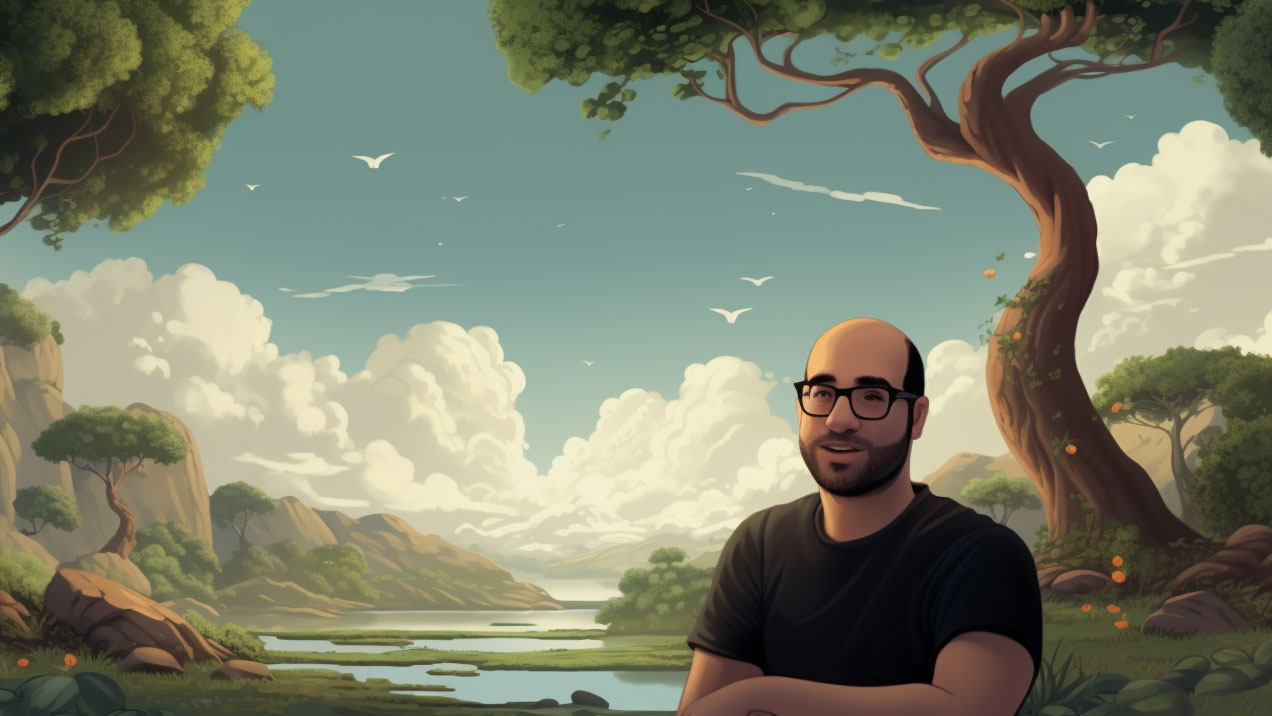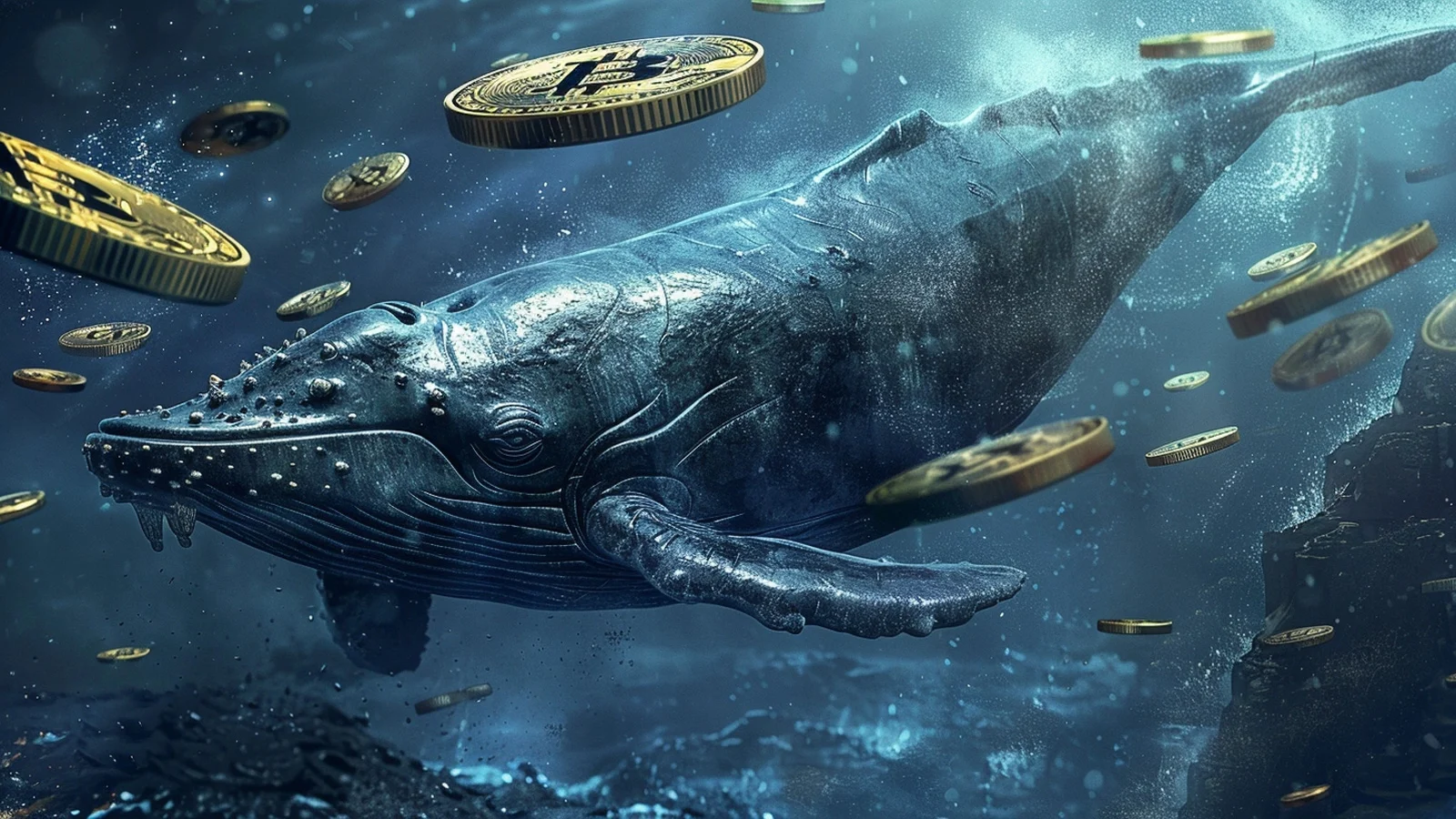In a specialized interview centered on gaming with Cryptonews, David Johansson, the CEO of BLOCKLORDS, explored the enduring connection between cryptocurrency and gaming. He shared insights into the game’s journey to its current status, overcoming challenges along the way, leveraging industry conditions and acquired expertise to establish a platform facilitating the launch of Web3 games, and the evolution of user acquisition strategies over the past six years. Johansson’s interview delves into:
- The genesis of BLOCKLORDS and the inspiration behind its creation;
- BLOCKLORDS distributing 300,000 LRDS tokens to commemorate surpassing 60,000 players;
- The industry downsizing observed at firms like Riot, Epic, Activision Blizzard, and its implications for the industry’s future;
- The potential for AAA developers to explore blockchain and Web3 gaming:
- The special ingredient behind airdrops for Web3 gaming.
The union of cryptocurrency and gaming
The fusion of cryptocurrency and gaming represents a symbiotic relationship where elements from both domains intersect to create innovative experiences and opportunities. This convergence has led to the emergence of blockchain-based games, virtual economies, and novel gaming mechanics that leverage the unique properties of cryptocurrencies and decentralized technologies. Through this union, players can engage in various activities such as earning crypto rewards, trading virtual assets on decentralized marketplaces, and participating in decentralized autonomous organizations (DAOs) within gaming ecosystems. Moreover, the marriage between crypto and gaming has paved the way for new business models, funding mechanisms, and community-driven initiatives, fostering a vibrant and diverse landscape at the intersection of finance and entertainment.
When BLOCKLORDS originated in 2018, Web3 games weren’t prevalent. Interestingly, it was conceived as a Web3 game from the start, as highlighted by its co-creator. The fundamental concept remained consistent: BLOCKLORDS is an MMO strategy game built entirely on Web3 principles. According to Johansson, this vision persisted throughout.
“I’ve seen many games come and go. And so definitely that’s one of our strengths as a team; we’ve stood the test of time, we’ve survived the bear market.”
Johansson’s experience in Hollywood’s film industry, followed by his ventures in China’s gaming sector, provided him with numerous invaluable insights into creativity and the process of creation. Subsequently,
“In 2017, I discovered crypto. I fell in love with it.”
Seeking to embark on a fresh endeavor, he teamed up with his longtime collaborator Nicky Li, whom he had been working with since 2014.
Upon familiarizing himself with cryptocurrency, Johansson recognized the potential as soon as he grasped the mechanics of smart contracts.
“Gaming and crypto are forever linked.”
Players are accustomed to digital possession, rarity, and the significance of in-game activities. On the other hand, cryptocurrency requires a more effective means of introduction to attract a wider audience. The CEO remarked, “Crypto enthusiasts approach financial markets much like gamers approach games, essentially, so it was an ideal match.”
From Nothing to 15 Million
The team behind BLOCKLORDS is currently focused on developing the game’s third iteration. However, reaching this point was not without its challenges. In the spring of 2018, the co-founders began seeking investors. However,
“Nobody believed in crypto gaming back then.”
In the gaming industry, some view crypto skeptically, labeling it as a scam. Conversely, within the emerging decentralized finance (DeFi) sector of the crypto space, there were doubts about integrating gaming into matters of serious financial concern. However, in August 2018, the team achieved a significant milestone by winning the Best Blockchain Game award in NEO’s competition, which provided $80,000 in funding—essentially serving as their seed funding, according to Johansson.
Despite this initial success, the journey to build the game was challenging, and funds quickly dwindled. Fortunately, the team secured another victory in a TRON contest, which brought in an additional $30,000. Consequently, they decided to launch on Tron, which proved to be a successful move.
“What we noticed right away from launching blockchain games was that it was easy to get users who were very dedicated and who would spend quite a lot on their game experience.”
However, acquiring users posed a challenge.
Throughout 2018 and 2019, the team, consisting of approximately six individuals, persisted in developing the game across different blockchain networks. However, this period was characterized by a steep learning curve, accompanied by numerous challenges. Moreover, the team relied on grants for sustenance during this time.
Then, the DeFi Summer of 2020 emerged. By this juncture, the team had amassed substantial expertise in blockchain gaming.
“We started getting a lot of requests and demands [from other teams to help them make their games.”
That’s when the concept for Seascape emerged: to develop a technological solution for NFT and DeFi gaming.
The Seascape Network debuted in 2021, securing half a million dollars in funding with Binance as the primary investor.
In 2021, amidst inquiries regarding the status of BLOCKLORDS, the team established a new studio, assembled a content team, and commenced work on the new iteration.
“And investors really went crazy for it.”
The objective was to secure approximately $4 million, yet BLOCKLORDS surpassed expectations by raising $15 million from a variety of prominent investors. These investors include Makers Fund, Bitkraft Ventures, Delphi Digital, Animoca Brands, Shima Capital, WW Ventures, Spartan Group, Huobi Ventures, Funplus, YGG, and others.
User acquisition has come a long way over the years.
David Johansson pointed out that user acquisition in Web3 has evolved significantly. “While there’s still room for improvement, it has certainly progressed,” he emphasized.
Initially, ad platforms have become more accessible. Advertising blockchain games on social media platforms like Meta and Twitter has become simpler.
“It’s much easier to get ads now, and it’s much easier to reach more users with the ads, which is great. And I definitely think our brand potential has grown with the ads.”
Web3 gaming faces challenges in competing with Web2. Acquiring players isn’t the only issue; retaining them is also a concern. However, the advertising system, as observed in Web2, is fundamentally flawed. Interestingly, this system is being overhauled through Web3.
Moreover, there’s a proliferation of advanced tracking tools now available, enabling significant experimentation in targeting Web3 users who were previously engaged.
Additionally, community involvement plays a significant role in user acquisition, according to Johansson.
“I would say that that is the vertical that really Web3 has an edge over Web2: the community is an integral part of your user acquisition and your user retention. So you need to put a lot of focus on that.”
In addition to various initiatives, BLOCKLORDS incentivizes users through game drops, during which they distribute the game’s native token LRDS.
Change in the Gaming Landscape
Hiring individuals for roles in Web3 gaming has become significantly more straightforward. It’s no longer an industry that people are avoiding.
Previously, developers would dismiss the notion of working on a free-to-play game outright. “Now, essentially every quality game is free-to-play,” remarked Johansson.
“A lot of that hate is going to pass. I think there is a brain drain happening from Web2 to Web3.”
Furthermore, skilled game developers aspiring to establish their own studio will find greater opportunities for funding as a Web3 project compared to a Web2 project.
“I think we would never have gotten the funding we got as a Web2 project. That’s just a fact. And […] strategy games don’t get a lot of investment generally.”
Funding in Web3 is considerably more flexible, leading to a wide range of projects receiving financial backing. While some projects may not meet expectations, others excel. With increased opportunities and capital influx, the sector is witnessing a surge in job creation, ultimately benefiting the entire industry. Legacy gaming in Web2 still has many challenges to address, and over time, Web3 is poised to gradually capture a larger market share, according to Johansson’s assessment.
About David Johansson
David Johansson is a prominent figure in blockchain gaming, serving as the CEO of BLOCKLORDS. With a background in Hollywood and the gaming industry in China, he brings vast experience to the intersection of gaming and blockchain. Johansson’s leadership at BLOCKLORDS has been instrumental in shaping the game’s vision and navigating challenges. He shares insights on blockchain gaming’s evolution, developer challenges, and future prospects. Johansson’s innovative strategies in user acquisition and community engagement establish him as a thought leader, shaping the landscape of Web3 gaming.



